Taking too long? Close loading screen.


Despite the advance of artificial intelligence, human empathy and emotional intelligence remains a vital element of the customer experience offered by contact centers – but it has never been as hard to retain talented staff. Here’s how your organization could win this particular war of attrition.
At the moment, around 40% of companies who buy outsourced services use them for CX, usually in the form of traditional live chat.
While some industry observers estimate that three-quarters of organizations will use some type of artificial intelligence for predictive routing, chatbots, and agent assistance in their contact centers by 2024, it seems likely the insight and empathy that only living, breathing human beings can provide will still be in demand for some time yet.
Delivering the very best customer experience now requires business acumen, and technical and digital competence – but it also needs employees with emotional intelligence, who care about their role in customer support.
Unfortunately, after years of historically high attrition rates in the sector, and in the aftermath of the pandemic and the push to return to the office, many decision-makers report that it has never been harder to attract the right talent – and it is even more difficult to retain the skills and experience of these incredibly valuable people once they’re in place.
After talking to 300+ contact center professionals in Europe and North America, EvaluAgent that an astonishing 47% of all contact center employees planned to leave their current role within 18 months
The reasons behind this are many and varied: Some employees may view contact center work as a job rather than a career, leading to increasing absence rates.
Even for well-motivated employees, separating work and homelife has never been harder. Working from home can often mean working around the clock, leading to a risk of burnout. It’s also much harder to engage with your employees when they are working remotely or hybrid.
And although customer support employees are working harder than ever, they have not directly interacted with customers to this extent previously – and that means that the employee experience (EX) has more impact on customers than ever before.
According to a conducted by Salesforce and Forbes, creating a satisfying EX and CX can increase revenue 1.8 times
Tiffani Bova, Customer Innovation Evangelist at Salesforce underlines this link when she says: “The fastest way to get customers to love your brand is to get employees to love their jobs.”
Meanwhile, PwC says that companies that invest in and deliver superior experiences to both consumers and employees enjoy several benefits, including being able to charge a premium (of up to 16%) for their products and services.
Similarly, MIT researchers that companies in the top quartile of EX developed more successful innovations, and received twice the amount of revenues from their innovations, as those in the bottom quartile — and their industry-adjusted Net Promoter Scores (NPS) were twice as high.
You don’t have to be a psychologist to understand that it’s unlikely that employees will deliver a highly empathetic, caring, and personal service if they work for an organization where the culture does not celebrate and embrace those same values.
The employee experience (EX) is increasingly important to customers who seek to align their spending power with their values – by working only with businesses that value their employees, treat them fairly, and prioritize their well-being.
shows that 84% of customers say the experience a company provides is as important as its products and services.
EvaluAgent found that 89% of revenue growth leaders believe that improved EX leads directly to improved CX. As a result, their companies treat the improvement of their EX as a strategic imperative.
The good news is that once employees are more invested in improved CX, customers often notice their enthusiasm – and respond in kind. But how do you get there?
You could start by asking yourself some difficult questions:
How do you recruit? Are you recruiting the right people that align with your business?
Advertising the diverse roles in contact centers, including junior to more senior leadership roles, demonstrates the career progression available and challenges the perception that a CX role is not a career.
Bearing in mind the importance of diversity and inclusion, health and wellness, and mental health to potential employees, and the current millennial cohort of potential employees in particular, it’s important that the hiring process as short as possible. Candidates should be kept informed of where they are in the process, and what they can expect next, throughout.
Engaging, immersive onboarding experiences that reduce the time it takes for employees to become productive will lower attrition further by focusing on employee engagement and experience from the outset.
Are you committed to training?
Support and development opportunities for candidates must meet the demands of the BPO program, including targeted training, mentoring, or additional resources. Employee development must also closely align with quality assurance (QA) to set objectives and monitor performance, with coaching as required.
As a result, agents will know they are progressing, with room to grow in their current role and beyond.
What is your culture? Do you listen to your employees?
Frontline employees often have the best ideas to improve CX because it’s something they do all day, every day. Listening to them and taking action based on what they have said highlights employees’ positive contribution to their peers and colleagues, and demonstrates their value to the organization in a very visible and authentic way.
This has a huge impact on an individual employee’s sense of pride in their job.
Insights into what employees experience every day provide a unique perspective on customer processes and systems that can’t be derived from data alone. ibex, for example, runs an employee satisfaction survey twice each year to find out what works well for its employees – and what does not.
“It’s vitally important to us at the site level to have the culture that we’re looking for,” says Jack Whitt, ibex’s Senior Director of Operations. “We really take a lot of time and include a lot of people across our organization to make sure we hear what our employees say, so that they can see us making an attempt to improve upon those things.”
How do you measure quality?
You need a clear-cut strategy to identify performance improvement issues, apply appropriate training, and measure its impact. QA done well increases employee motivation, changes behaviors, and isolates customer journey pain points.
So no, AI doesn’t and won’t ever really empathize with your customers in the way that a human being can – but if that human being is going to empathize with your customers, they need to be engaged and motivated, they need to feel like they are heard, and they need to feel valued.
That doesn’t happen by accident.
A strong, confident and resilient workforce has a pivotal role in delivering exceptional customer service. Understanding the importance of EX as an investment in the overall growth and prosperity of your organization will mean your employees are happier, more productive and more effective than ever before.
And once your employees start loving their jobs, we think it won’t be too long before your customers are loving your brand.
Anticipating growth?
Access the tools, tech & team you need to scale globally.

Serious about scaling?
One call is all it takes to know if we’re a fit.
© 2024 Enshored · Privacy · GDPR · California · Cookies